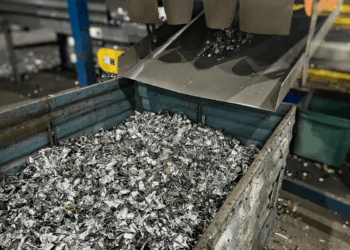Blancco has added Apple Airpods and the latest series of Apple Watches to the list of devices supported by its data erasure and diagnostic tools.
The move by Blancco, a software supplier with U.S. headquarters in Boston, paves the way for the company’s customers to handle a wider array of end-of-life electronics.
“As technologies enter the new and refurbished markets, ITADs and mobile processors continue to diversify the types of assets they handle, with wearables as a key area of growth,” the company said in a release, adding that Apple is a major player in the wearable device markets.
“The explosion of wearables has driven an unprecedented demand for used devices such as Apple Watches and AirPods, with trade-ins and resale increasing every year,” said Russ Ernst, Blancco’s chief technology officer, in the release. “New revenue streams for mobile processors, ITADs, retailers, and enterprises depend on being able to securely process more than phones alone. Blancco is future-proofing solutions for our customer base by supporting not just today’s needs, but needs tied to where the secondary market is heading.”
Wearables have long been projected to represent a growing portion of the end-of-life stream. As their presence has grown, data sanitization of these devices has presented unique challenges. Sustainable Electronics Recycling International (SERI), which maintains the R2 standard, in 2022 issued a formal interpretation of the standard to clarify how it applies to certain wearables.
Blancco hinted at some of the specific considerations when it comes to wiping data from wearables: Apple Watches can remain paired to other Apple devices even after they’re discarded, or can remain linked to the previous owner’s Apple account, complicating the repair and resale process. The erasure software can detect this pairing and alert processors before the devices are resold. This simple notification “plays a critical role in preventing the accidental sale of locked or user-associated hardware — saving time, avoiding disputes, and protecting brand reputation,” Blancco wrote.





























